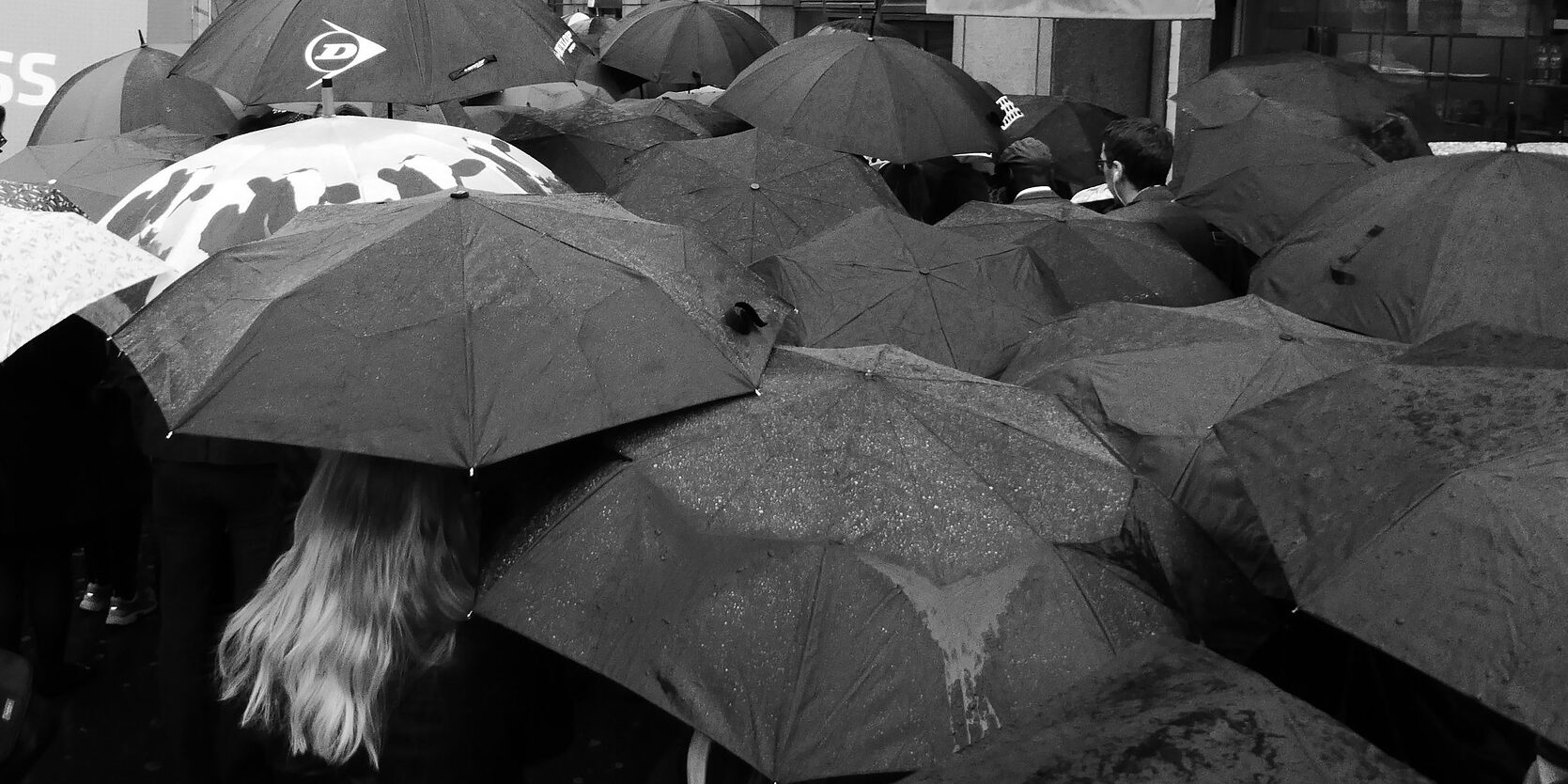I have no intention of explaining how I obtained this letter; suffice it to say that circumspect investigations have confirmed its authenticity, and the identity of the correspondents.
My dear Wormwood,
I read your latest letter with great trepidation. You may well feel that things with your patient are proceeding marvellously; he has been persuaded, as have many of the mortals, that the actions of the partisan are answerable only to a higher power than any authority on earth.
In this he is of course quite correct, but thanks to your excellent work — and the work of those who have gone before you — he does not identify that power with the Enemy, but rather with a curious notion of an abstract morality; one that stands according to his prejudices, and is quite unbreachable by reason or argument.
The problem, dear Nephew, is that you seem to believe that the patient can now be safely relied on to deliver himself to Our Father Below. Nothing could be further from the truth! Partisanship is all well and good, but you must be constantly active in provoking this sensation. Let him read constantly of some new outrage or behaviour of the other side, and let him believe that echoing it in turn is merely a justified response! He must never suspect that those who oppose him may in turn be responding to some member of his own tribe. Keep him in ignorance about these things, and adequately fed on outrage, and he will be ours in good time.
In your last letter you asked how you might best handle this latest stage of the pestilence. The brief period of confinement associated with its earlier stage offered us the opportunity to invite the patient to sample depravity, but you must now adjust your tactics to account for the new reality. The protests — to which he is already sympathetically inclined — offer an excellent opening. If you can, have him take part in them, rather than merely cheering them on from the sidelines; let him believe that he is practising virtue by risking the health of those around him, when in fact he is merely practising egotism.
Remember, he is not like you or I a pure spirit; he does not see the world as it really is, but as it is constructed by the curious filtering effect of the human senses. To him, the spectre of the virus has long receded into the past. There are more urgent matters than combating the spread of disease; he has protests to organise, crowds to jam into, and aerosolised saliva to spread by chanting ‘we can’t breathe’. The human concept of the world is little more than a collective hallucination that they happen to be sharing, and as he is now bored of the virus it is no longer a threat.
He must not be allowed to be persuaded that this is untrue.
You mentioned that your patients partisanship had led to his arguing in defence of political violence; this is most cheering! This is, however, regrettably ground upon which the Enemy has many strong arguments to present — do not do evil that good may result, and so on. I have therefore taken it upon myself to arm you with some useful little phrases that you may turn to the cause.
Should your patient be challenged with the assertion that violence on the part of his side will open the door for violence on the part of the other, try telling him that the other side is already violent; that the state of the world itself and their action or inaction constitute a violent oppression of his political tribe. This is of course a foolish argument, but it is one which proves surprisingly forceful when combined with the inner prejudices of a man’s soul.
If your patient moves in more politically sophisticated circles, he will probably be called to notice that the police, far from oppressing him, are passively standing by and permitting the breaking of the law. In this case, he may also be asked whether he wishes the law to be enforced based upon the perceived popularity of doing so, and what this might do to the vulnerable members of society he professes to care so deeply about. The point may also be raised that with vandalism and destruction will make the cause look bad, and may be counterproductive.
If he is, as you say, deeply enough involved in this movement to be exposed to these criticisms, then you may appeal to realpolitik. Do not waste time trying to persuade him that they are invalid; he already knows in his heart of hearts that they are true, but does not care. The primacy of the cause as the ultimate good will be sufficient to persuade him that it is worth the moral cost. Instead, you must take great care to ensure that he does not come to believe that they point to ways in which his actions may damage the cause — for that would result in disengagement, and from disengagement, sanity, and from sanity, regret, repentance, and the sorry spectacle of a soul which may have been usefully turned being redeemed.
In this matter, the best thing to do is to give him a sight of the world as it really is. Not too much of one, of course — you must keep his gaze narrowly blinkered, so that he does not spot his real position. Here you may fruitfully point out that when violence occurs at a left-wing demonstration, sympathetic writers in the press will often say that they should not permit the actions of a few rogue elements to detract from the attention generated for the noble cause. You may also note that the same journalists will often leap to a panic about the menace of the far-right while the ashes are still smouldering. This has the beneficial consequences of consigning the idea that left-wing violence is a problem of any real scale to the abyss of memory, and creating a lasting asymmetry in perceptions of both the frequency and legitimacy with which the extreme left and right wield violence as a political tool.
The idea that this strategy could at some point backfire by setting an example that cannot be readily ignored — resulting in political violence becoming normalised as a tool to win power — is one that can be safely ignored. Precedent, anyway, is something that happens to other people; should this turn out to be incorrect, his side will have struck the first blow.
In this manner, he may be persuaded that violence is at the least not harmful to his cause, and may in time come to view it as a useful tool — these humans are so predictable.
Of course, he does not see as you and I do the events that would naturally follow. Should the police continue to give leeway to the left, the right will rise to fill the void, and the police will then be instructed to crush them. This, in turn, will present the right with the image of the state actively promoting double standards, and choosing the side of those who wish to destroy their past — always destroy, or erase, or otherwise mutilate, we will make sure to it that an appropriate term is chosen — and act as a recruiting drumbeat for the far right. In turn, this will drive more people into the arms of the far left, and so on.
If done correctly, you and your fellow tempters will have placed your patients in states where they can at the same time cheer on acts of violence from their own side, while decrying those of the people they oppose. They will be quite incapable of reasoning with one another, but instead will view their opponents as an existential threat to be eliminated. And once one side finally does win power, they will set about doing so.
And that, dear Nephew, will be a most delicious harvest.
Your affectionate Uncle,
Screwtape
Cover image courtesy of Spencer Means, used under a Creative Commons Licence.
![]() . In this world, someone who works out more is likely to have more muscle (1) than someone who does not (we’ll call this
. In this world, someone who works out more is likely to have more muscle (1) than someone who does not (we’ll call this ![]() for exercise), and so is someone with higher testosterone levels (
for exercise), and so is someone with higher testosterone levels (![]() ). Finally, we know whether people are male or female, and we think that this affects
). Finally, we know whether people are male or female, and we think that this affects ![]() . Because this is a binary category (2), for technical reasons we have to set one as the baseline. We’ll choose female as the base for this model, so we’ll add a variable (
. Because this is a binary category (2), for technical reasons we have to set one as the baseline. We’ll choose female as the base for this model, so we’ll add a variable (![]() ) that indicates whether someone is male.
) that indicates whether someone is male.![]()
![]() is the effect of testosterone on muscle mass, and
is the effect of testosterone on muscle mass, and ![]() is the effect of exercise (3).
is the effect of exercise (3).![]()
![]() is the average difference between men and women in terms of muscle mass.
is the average difference between men and women in terms of muscle mass.![]() .
.![]() produced by this model should be equal to 0 (4). Being a man has no effect on muscle mass, controlling for testosterone. This is entirely true, and also almost completely useless if what we wanted to know was what effect being a man has on muscle mass. This is an Everest regression.
produced by this model should be equal to 0 (4). Being a man has no effect on muscle mass, controlling for testosterone. This is entirely true, and also almost completely useless if what we wanted to know was what effect being a man has on muscle mass. This is an Everest regression.





